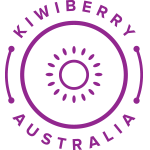KIWIBERRY NUTRITION
Kiwiberries are one of the most nutritious fruits on the planet. They are a rich source of vitamins, trace elements, antioxidants, amino acids and fibre. Their overall composition is similar to that of kiwifruit, but kiwiberries contain higher amounts of relative nutritional content. The stand out nutritional characteristics of this fruit in comparison to commonly consumed fruits and most heralded “superfruits” are:
These small but mighty berries are nutritional powerhouse and have achieved a recognition as the topmost superfruit in the world. Eating just few Kiwiberries per day can significantly improve nutritional status of both young and adult population. This is highlighted in Table 1 below. Research has effectively linked increased fruit and vegetable consumption to significant life life-long health benefits and increased life span.
On the nutrition density front, Kiwiberries can certainly win gold, silver and bronze medal out of 1755 edible fruit types in the world. One serving of 100 gram (8-10 fruits) has about:
Nutritional density of Kiwiberries compared to other fruits is further exemplified in Tables 2 and Table 3. Notably, Kiwiberries are also one of the most important sources of true wide spectrum of antioxidants. Kiwiberries with their exceptional nutrient density are therefore better able to provide wide range of daily nutrients needs in one delightful fruit. Kiwiberries are a super-healthy and delicious option to complement everyone’s daily diet.

HEALTH BENEFITS
The extent of research into phytochemical and pharmalogical potential of Kiwiberries is still limited as this fruit is relatively new entrant in the produce market. However, there is a growing body of evidence indicating Kiwiberries destined to become one of most promising functional foods offering clearly evident health and physiological benefits beyond the traditional nutrients it contains. Some examples of Kiwiberries pro-health benefits are provided below.
GASTRO-INTESTINAL TRACT DISORDER PROTECTIVE ACTIVITY
There is overwhelming evidence which shows that Kiwiberries have laxative properties. Studies to date have shown that intake of Kiwiberries/kiwifruit is associated with increased frequency of defecation, higher stool volume, greater softness of bowel movement, improved transit time and rectal sensation. These are important attributes/characteristics in light of increasing proportion of elderly and diabetic population that experience impaired bowel function. Furthermore, recent studies have also shown that Actinidia arguta aqueous extract might have anti-allergic effects on allergic diarrhea.
Gastrointestinal benefits are attributed mainly to the lubricating effects of kiwifruit’s pectin and the enzyme actinidin, which combine with the enzymes in the stomach and the small intestine to improve digestion.4 The pectin and fiber present in kiwifruits also function as prebiotics.
Preliminary research also indicates Actinidia fruit (i.e. kiwiberries and kiwifruit) having a potent anti-inflammatory effect on irritable bowel disease (IBD). It was recommended that further research is carried out to explore the medicinal properties of Actinidia fruits in the treatment of IBD.
ANTICANCER ACTIVITY
Preliminary research has found extracts from Kiwiberries to display potent inhibitory effect on human esophageal/esophagus carcinoma cells and to possess antitumor activity against human leukemia. Additionally, a study carried out in Korea, shown Kiwibery extracts to inhibit proliferation of liver cancer cells Hep 3B. Another recent study carried out in China shown purified extracts of polysaccharides to be highly effective in apoptosis of hepatoma Hep G2 cancer cells. It was concluded that Kiwiberry polysaccharides maybe potential source of natural antitumor and may be used as natural health food with antitumor actions. Furthermore, recent studies carried out in Japan have demonstrated that Kiwiberry juice inhibited the mutagenic activity of food borne carcinogens. It also inhibited DNA adduct formation in liver (process which starts cancer cells) and inhibited the induction of acute inflammation of mouse skin tumors. The study concluded that components of Kiwiberries are attractive candidates for potential use as chemo-preventive agents.
In a pilot study of smokers with bronchial dysplasia, supplementation of 18g Myo-inositol daily for three months was associated with a 91% rate of clinical regression. Myo-inositol oral ingestion may therefore reduce tumor formation in the lungs. While human evidence is very preliminary at this point in time, it suggests that the reduced risk of developing lung cancer does hold true.
The study carried out by Rowett Research Institute has also shown the DNA repair rate to almost doubles by eating Kiwifruit, thus protecting against the kind of genetic damage that can result in cancer.
Additionally, the lignins in cellulose (a form of dietary fiber) are believed to have antimutagenic properties due to their ability to increase the adsorption of aromatic amines in the gut, thus preventing them from entering the blood stream. Aromatic amines can act as carcinogens after they have been metabolized by the liver.
CARDIOVASCULAR DISEASES PROTECTIVE ACTIVITY
Kiwiberries are an excellent source of polyphenols, flavonoids, natural antioxidants such as vitamin C and E, micronutrients and fiber. In epidemiological and clinical studies, these constituents have been associated with improved cardiovascular risk profiles. Human intervention studies using different berries have demonstrated significant improvements in LDL oxidation, lipid peroxidation, total plasma antioxidant capacity, dyslipidemia, and glucose metabolism. Benefits were seen in healthy subjects and in those with existing metabolic risk factors.
As a related example, a study by University of Oslo has shown that eating two kiwifruit per day can improve heart health, by thinning the blood and reducing clotting (Platelet aggregation) by an average of 18%, and lowering the blood triglycerides by an average of 15%. Another study found kiwifruit to reduce blood pressure by 10 mm Hg in systolic BP and 9 mm Hg in diastolic BP in male smokers. Additionally, a 15% reduction in platelet aggregation and an 11% reduction in angiotensin-converting enzyme activity was observed in the kiwifruit group compared to antioxidant rich diet group. The fraction of soluble dietary fiber (SDF) was concluded to have had a significant effect on lipid metabolism, and therefore plays an important role in the prevention of cardiovascular diseases. Notably, the SDF fraction in Kiwiberries is considerably higher than that contained in the kiwifruit.
ANTIDIABETIC ACTIVITY
Kiwiberries are one of richest sources of myo-inositol in the world. Supplementation of inositol has proven as effective means of alleviating the symptoms of diabetic neuropathy, most likely because of its neurotransmitter properties. Hence, it provides relief to diabetic neuropathy patients suffering from pain and numbness in the hands and legs. When taken orally, myo-inositol is reported to stimulate glucose uptake in skeletal muscle cells, thereby decreasing blood sugar levels. Myo-inositol was also found to reduce urine glucose concentrations (over a period of 24 hours) in obese insulin resistant monkeys, indicating that it may decrease high blood sugar levels after eating in people who are insulin resistant.
Additionally, supplementation of inositol throughout pregnancy appears to be able to half the risk of developing gestational diabetes, and even when the user does not develop gestational diabetes there may be a improvment of insulin sensitivity. There is also limited but promising evidence that myo-inositol reduces the effects of diabetes-related erectile dysfunction at a fairly reasonable oral dosage.
Notably, glycemic index for kiwiberries is relatively low so it does not increase blood sugar quickly which makes it good fruit for diabetics.
REPRODUCTIVE SYSTEM AND POLYCYSTIC OVARY SYNDROME (PCOS) IMPROVEMENT ACTIVITY
Inositol supplementation is particularly important for reproductive-aged women suffering from polycystic ovarian syndrome (PCOS). PCOS is one of the most common hormonal diseases effecting about 20% of women. The majority of women with PCOS have ovulation problems, insulin resistance, and abnormal male hormone levels. Myo-inositol shows the most promise as a dietary supplement for promoting female fertility and restoring insulin sensitivity in instances of type II diabetes. Supplementation of inositol in the range of 200-4,000mg daily appears to be effective in improving fertility in women with PCOS, while doses in the 2,000-4,000mg range appear effective in improving testosterone levels and insulin sensitivity. In vitro fertilization as well as overall pregnancy rates in women with PCOS are improved with supplementation of myo-inositol (particularly in combination with folic acid), and it appears that the symptom of oligo/amenorrhea (disrupted or absent periods) from PCOS can also be alleviated with supplementation. Furthermore, supplementation of folic acid around the time of conception was found to reduce the risk of birth defects in any pregnancy that might occur secondary to inositol therapy.
There is also a growing clinical evidences which suggests that treatment with myo-inositol to male patients improves sperm shape, sperm count, sperm concentration and motility (i.e. egg penetration).
PROTECTION AGAINST EYE AGE RELATED MACULAR DEGENERATION (ARMD)
Kiwiberries are rich source of phytochemicals lutein and zeaxanthin which are critical components residing in the human eye. These healthful components along with vitamin A have potential to be used in protecting the eyes from cataracts, age-related macular degeneration and other vision-destroying disorders.
ANTI-DERMATITIS/SKIN DISEASES REPAIR ACTIVITY
There is growing evidence that extracts of Kiwiberries have pharmalogical use in treatment of atopic dermatitis and skin lesions. Orally administered Kiwiberries extracts were found to significantly reduce clinical dermatitis severity, epidermal thickness, mast cell dermal infiltration and degranulation in atopic dermatitis. Oral formulations have been approved for human trials. It is also worth noting that kiwifruit dressings were found to significantly reduce the wound surface area and provide dramatic reduction in antibacterial and angiogenic actions.
IMPROVEMENTS IN IMMUNE ALLERGIC HYPERSENSITIVITY AND FLU SYMPTOMS
Immune hypersensitivity refers to body’s overreaction to substances such as pollen, yellow dust, cold wind, dust mite, smog, specific food, etc. The ability of hardy kiwi extract (PG102) to improve hyper-immune reactions was verified through clinical trials run by Korea’s leading researchers at Seoul National University Hospital’s Division of Allergy and Clinical Immunology. Results of trial have shown that PG102 extract had no observed side effects while safely improving allergy reaction levels. It was judged to have superior properties as a nutraceutical in controlling inflammation and fluids and inhibiting the advancement of immune reactions. Functional food product made with hardy kiwi PG102 extract as the main ingredient has been successfully marketed in Korea.
Human trials to study the effects of kiwifruit consumption in relation to cold and flu illnesses had shown fewer days of cold symptoms over the course of a cold and in the preschool children, the odds of getting a cold or the flu decreased by almost half in the children who ate two kiwifruits daily instead of one banana.
RESPIRATORY DISTRESS SYNDROME PREVENTION
Number of studies have reported that administration of inositol to premature infants with respiratory distress syndrome was beneficial in several respects. It decreased the severity of respiratory distress syndrome, decreased the mortality due to respiratory failure, increased the rate of survival without the bronchopulmonary dysplasia or neural development handicap, and decreased the incidence of retinopathy and blindness caused by it. The American Academy of Pediatrics has recommended that Inositol be included in infant formulas at levels equal or greater to those of human milk.
Recent studies have suggested that an aqueous extract (PG102) derived from kiwiberries may have potential as a safe and effective reagent for the prevention or treatment of asthma.
ANXIETY, PANIC ATTACK AND DEPRESSION TREATMENT
There appears to be a decrease in anxiety symptoms associated with high dose inositol, and it has been noted to be comparable to fluvoxamine in potency. Chronic ingestion of high doses of inositol (18g) is also associated with reductions in panic attack frequency to a level greater than the reference drug fluvoxamine. Additionally, there appears to be a reduction in depressive symptoms associated with inositol supplementation, although it is less potent than the benefits of inositol on anxiety and panic attacks.
IMPROVEMENT IN ANTI-FATIGUE AND INCREASED EXERCISE PERFORMANCE
Recent studies conducted in China have shown that alkaloids extracted from kiwiberries may be used as novel anti-fatigue and exercise performance improvement agent. Another study also from China found that when a kiwifruit supplemented sports drink was provided to 25 athletes training in hot environment their work time prior to exhaustion was lengthened, the blood volume expanded and blood glucose during extended training were maintained.

